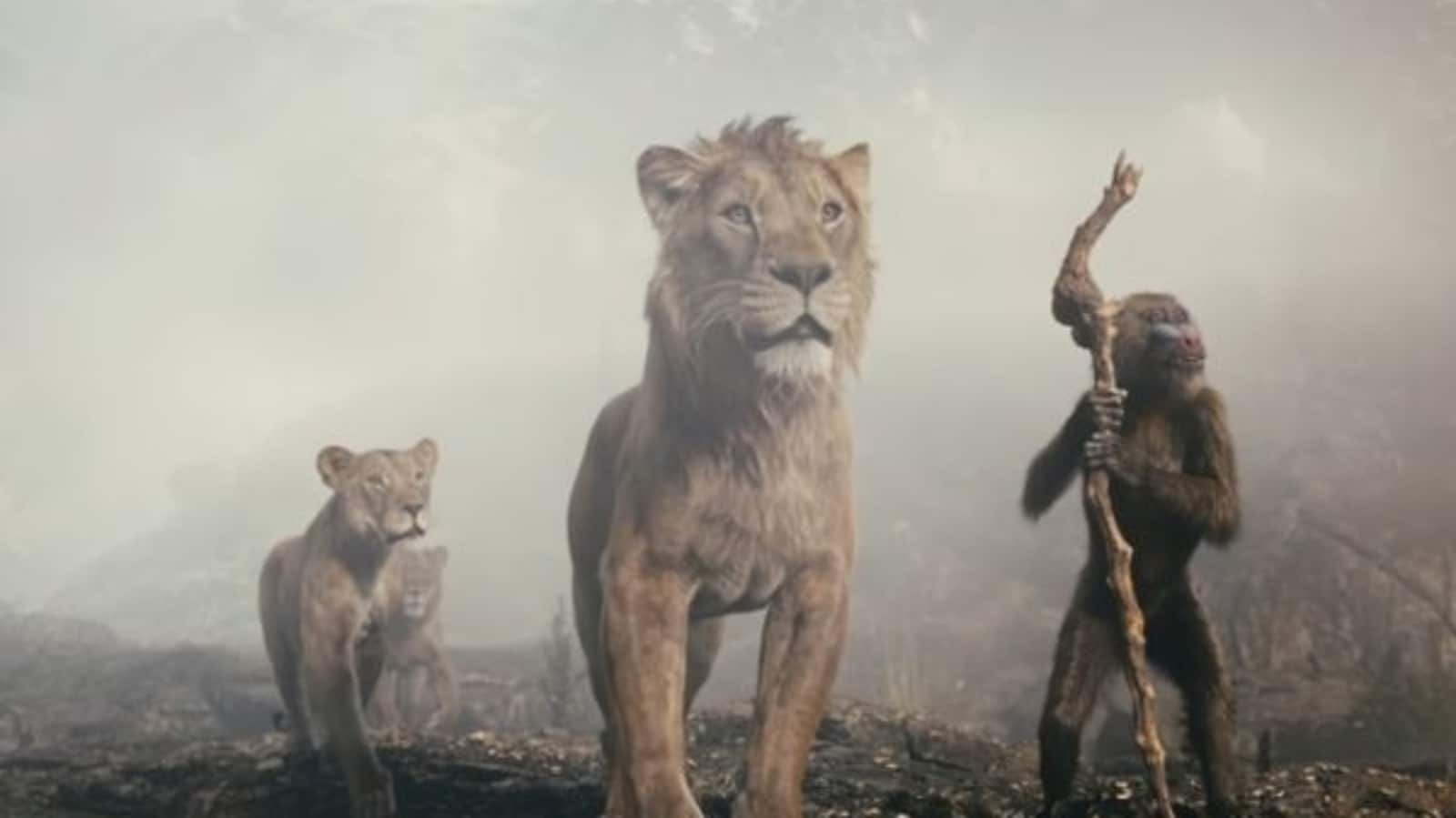Mufasa: The Lion King serves as another chapter in Disney’s relentless quest to reinvent its animation classics, often at the expense of originality, for modern audiences. Directed by Barry Jenkins, this prequel to the 2019 The Lion King remake explores the origin story of the legendary lion Mufasa, whose legacy shapes the Pride Lands. Despite flashes of Jenkins’ distinctive style, the film is hamstrung by its bloated story and the constraints of corporate filmmaking.
The film begins after Simba’s reign, with Nala (voiced by Neha Gargwa) on the verge of giving birth. The always witty Timon (Shreyas Talpade) and Pumbaa (Sanjay Mishra) are tasked with keeping an eye on Kiara as Simba (Aryan Khan) runs towards her. Rafiki (Makarand Deshpande) uses this as a pretext to tell Mufasa’s story, setting the stage for a journey into the Lion King’s turbulent past.
We meet young Mufasa (voiced by Abram Khan), whose life takes a tragic turn when a devastating flood separates him from his family. Rescued by a high-spirited young prince, Taka (Trilok Sundarasan), Mufasa finds an unexpected brotherly bond. Before I go on, there may be no prizes for guessing who Taka will ultimately become at the end of the movie and it doesn’t really even qualify as a spoiler alert.
Good
Anyway, the film does well in these early stages, showcasing the cordial moments between the two cubs and Jenkins’ intimate direction. Close-ups and sweeping pans bring warmth to otherwise cold live-action scenes, especially during the playful frolic of the young lions.
However, the story starts to falter as it progresses. Mufasa grows up under the suspicious eye of Taka’s father, Obasi (Uday Sabnis), who views the orphan as an outsider. Despite this, Mufasa integrates into the pride, developing his hunting skills and displaying a natural connection with the forest. As the cubs mature into adult lions, Mufasa (now voiced by Shah Rukh Khan) and Taka (Meiyang Chang) face increasing tensions, culminating in a series of conflicts that strain their relationship. Creates tension.
bad
The film attempts to expand the lore with the introduction of the White Lions, referred to as ‘others’ or ‘outsiders’ who challenge the Pride Lands. However, this subplot feels too familiar, underdeveloped, and overly complicated. The introduction of other characters like Sarabi (Kamakshi Rai) and Zazu (Rajesh Kava) and a young Rafiki (Thomson Andrews) adds to the clutter without providing much depth.
While the voice cast, led by the Khan family, adds star power, it can’t compensate for the film’s narrative shortcomings. Taka’s transformation into Bitter Scar (if you didn’t see it coming, I’m afraid that’s on you) lacks the emotional resonance expected from such an important arc, and similarly, Sarabi’s character turns tragic. Has been used less than.
Decision
Despite Jenkins’ valiant efforts to fill the story with visual beauty and thematic significance, Mufasa: The Lion King ultimately feels like another Disney product designed more for franchise expansion than storytelling. The grandeur of the Pride Lands is overshadowed by a lack of coherence and the feeling that it is just another cash cow for Disney.
